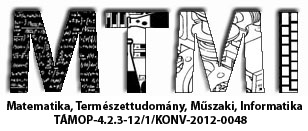Effects of adenosine on human hair follicles and hair follicle derived outer root sheath keratinocytes
Előadás adatai
Adenosine is an essential metabolite which is known for its various physiological functions such as angiogenesis and vasodilation, and has special roles in energy transfer and neurotransmission. Recent studies strongly suggest that adenosine has an important role in modulating hair follicle (HF) thickness and growth. It was previously reported that adenosine increased the level of important hair cycle stimulators (endothelial growth factor, fibroblast growth factor-7) on cultured HF derived dermal papilla cells via adenosine receptor mediated signaling pathway.
In our present research, we have investigated how human HFs and HF-derived outer root sheath keratinocytes (ORSK) respond to adenosine treatment.
At first, we identified the four types of adenosine receptors expressed by human HFs and primary cultures of ORSKs, both on mRNA and protein levels. We found that various concentrations of adenosine did not significantly interfere with the viability of ORSKs and did not induce cell death. Additionally, by performing a functional analysis of the effect of applied adenosine with RT-qPCR technique, we determined the expression of various cytokeratins. Adenosine caused a significant increase in the expression of various differentiation markers (KRT1, KRT10, Loricrin and Filaggrin), thereby shifting the proliferation-differentiation balance of the ORSK cells toward differentiation. Of further importance, adenosine exhibited a strong anti-inflammatory effect (significant suppression of various pro-inflammatory cytokines e.g. interleukin [IL]-1α, IL1β, IL6, IL8 and tumor necrosis factor-α). Furthermore, adenosine treatment successfully prevented the Poly (I:C) (Toll like receptor 3 activator) induced cytokine production, suggesting a potential effect as an anti-inflammatory agent during in vivo inflammatory conditions as well. Finally, using HF organ culture model system our current study revealed that adenosine significantly increased the HF elongation, in concordance with the literature.
These data suggest that adenosine may function as a therapeutic pharmacological agent for manipulation of hair growth disorders and inflammatory conditions.
Támogatók: Támogatók: Az NTP-TDK-14-0007 számú, A Debreceni Egyetem ÁOK TDK tevékenység népszerűsítése helyi konferencia keretében, az NTP-TDK-14-0006 számú, A Debreceni Egyetem Népegészségügyi Karán folyó Tudományos Diákköri kutatások támogatása, NTP-HHTDK-15-0011-es A Debreceni Egyetem ÁOK TDK tevékenység népszerűsítése 2016. évi helyi konferencia keretében, valamint a NTP-HHTDK-15-0057-es számú, A Debreceni Egyetem Népegészségügyi Karán folyó Tudományos Diákköri kutatások támogatása című pályázatokhoz kapcsolódóan az Emberi Erőforrás Támogatáskezelő, az Emberi Erőforrások Minisztériuma, az Oktatáskutató és Fejlesztő Intézet és a Nemzeti Tehetség Program



